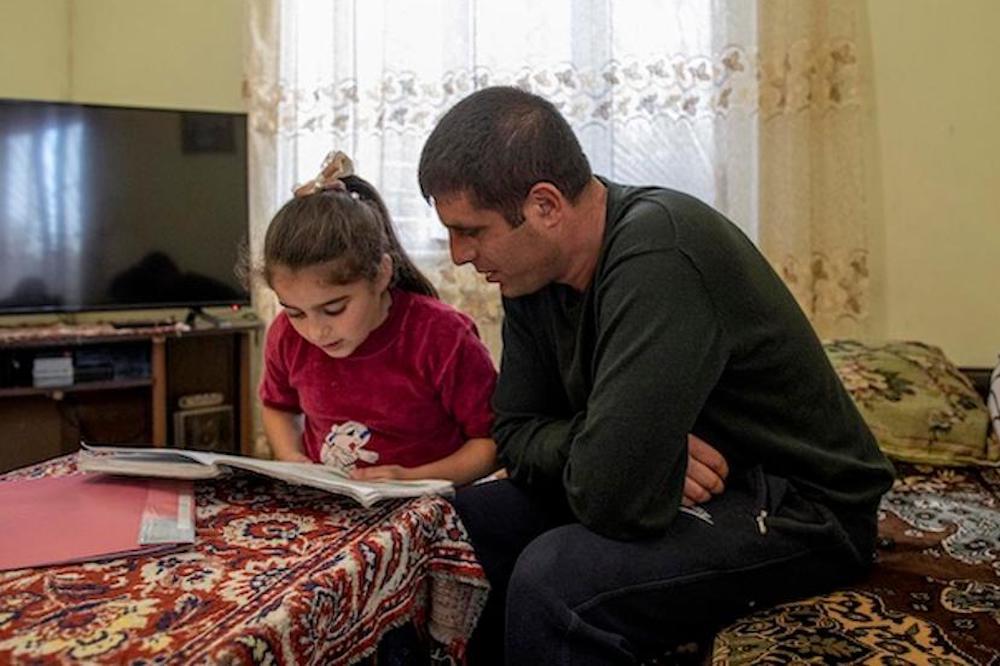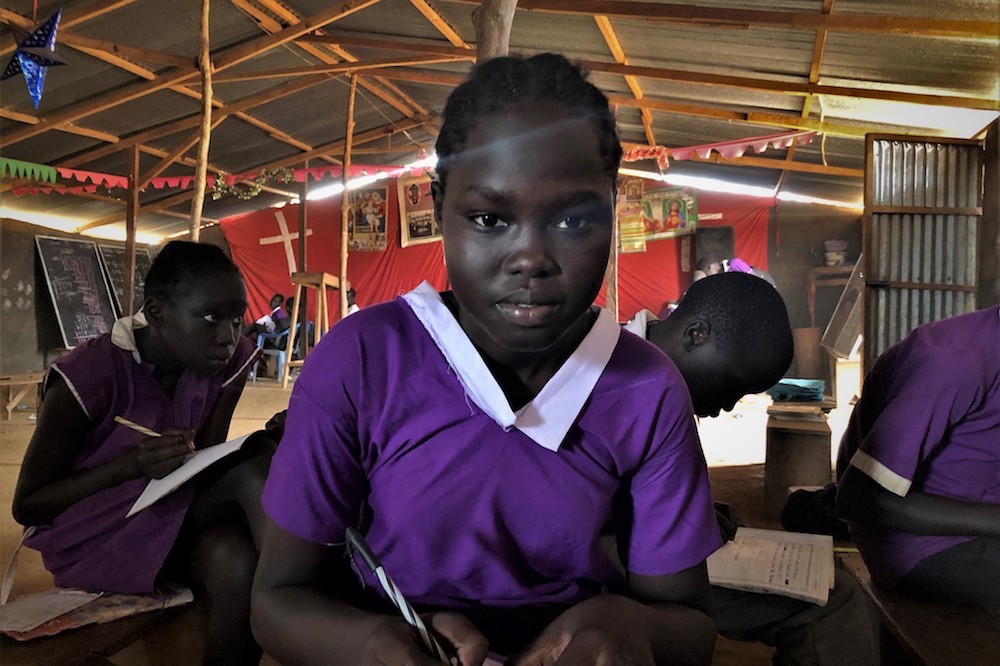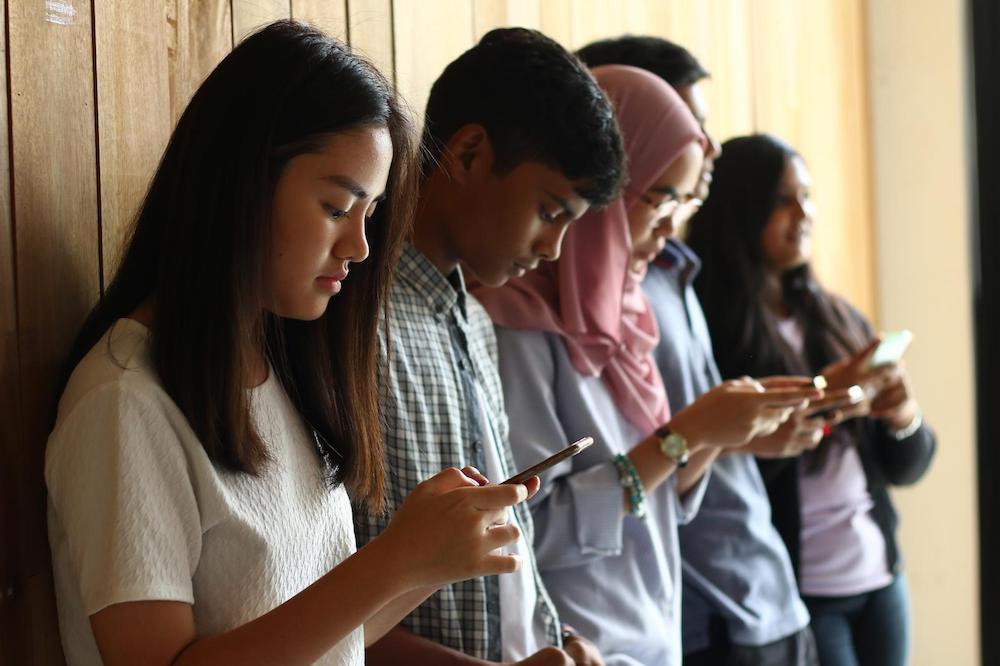
Five things you need to know this week about the coronavirus effect on global education

Child trafficking, Education in emergencies, Girls' education
The pandemic has impacted 90% of the world's students through school shutdowns - children are also missing out on meals and at risk of violence and exploitation.
1.5bn students shut out of their schools
Almost 90% of the world’s student population – that’s 1.52 billion young people – have now had their education impacted by the coronavirus pandemic.
A total of 165 countries have implemented nationwide school closures, according to the latest United Nations update. Several others, including the United States and Russia, have localised school closures.
UNESCO has convened the Global Education Coalition – a broad group of international organisations, civil society and private sector partners. The agency hosted an online meeting of education ministers to review how countries are supporting students, teachers and parents to provide learning at home.
As well as virtual platforms, nations are using public television to provide courses for students of all ages as well as training to teachers.
Lucia Azzolina – education minister in Italy, one of the countries worst affected by Covid-19 – said: “We are using social media tools to keep alive the relationship between teachers and students, and keep up their motivation.”
“Only 60% of students have internet so we had to provide a mix of distance education with open TV to reach everyone,” said Mexico’s education minister Esteban Moctezuma Barragán, who stressed that his country is exploring strategies to reach children with special needs.
Several ministers highlighted that the current crisis is ushering in new thinking around the practice of education. Egypt’s Tarek Shawki said: “We have made more progress with digital and distance learning in the past 10 days than in the past 10 years. Without a doubt this crisis will change the way we think about the provision of education in the future.”
UNICEF to help children continue learning
As school closures disrupt education for more than 80% of students worldwide, UNICEF is supporting children to continue learning while keeping schools safe.https://t.co/peantpZtuf
— UNICEF (@UNICEF) March 26, 2020
UNICEF will significantly scale up support in all countries to help children continue their learning while keeping schools safe, it announced yesterday
“Unless we collectively act now to protect children’s education, societies and economies will feel the burden long after we’ve beaten Covid-19. In the most vulnerable communities, the impact will span generations,” said Robert Jenkins, UNICEF Global Chief of Education.
UNICEF has allocated additional funding to accelerate work with governments and partners in more than 145 low- and middle-income countries. The initial global allocation of $13 million – nearly $9 million of which comes from the Global Partnership for Education – will support governments and a wide range of education partners in each country to develop plans to enable a rapid, system-wide response.
The initiative will enable countries to prepare alternative learning programmes in the case of school closures and help schools keep children and their communities safe by providing vital information on handwashing and other hygiene practices.
School meals crisis for 320m children
https://www.instagram.com/p/B-KLZHeDvQl/
More than 320 million children around the world are now missing out on school meals due to the school closures. Many of these children are from poor families and depend on the daily meals they receive at school.
So far 37 countries where the World Food Programme (WFP) has school feeding programmes have reported partial or countrywide shutdowns. This means nearly nine million children are no longer receiving WFP-supported school meals – and that number is set to rise.
For many, hungry children, a school meal may be their only nutritious meal during the day. For poor families, the value of a meal in school is equivalent to about 10% of a household’s monthly income. For families with several children in school, that can mean substantial savings.
Carmen Burbano, director of school feeding at WFP, said: “For children from vulnerable households whose only proper meal is the one they get at school, this turn of events is calamitous. We can shift to online learning, but not online eating. Some solutions are needed and that’s what we’re working on.”
School closures mean girls more at risk

Girls face increased risk of violence and other threats under the pandemic (ECW)
School closures due to coronavirus in West Africa risk exposing girls to sexual violence and unwanted pregnancy, experts said – basing the warning on past experience with Ebola.
Activists said countries should take preventative measures now, such as reinforcing sexual violence hotlines, making public announcements about the penalties for rape and using technology to help teachers keep in contact with students.
In many places, schools serve a critical role as a safe space for girls, said Judy Gitau, Africa coordinator for the global women’s rights group Equality Now. She said: “It is critical that governments begin to think about this. Public service announcements need to be made that any violations that happen within the context of the quarantine will be punished, and investigations will be undertaken.”
In Sierra Leone during the 2014-2016 Ebola outbreak, schools were closed for nine months and the UN estimated that 18,000 teenage girls became pregnant. When schools re-opened the government banned them from attending and many missed university entrance exams.
Warning over cybersex traffickers

Spending more time online may heighten the risk of grooming (UNICEF / Zhari)
Cybersex traffickers are likely to exploit the coronavirus pandemic to target more children across Southeast Asia for online sexual abuse, child rights activists have warned.
The global spread of cheap, high-speed internet and the rise in mobile phone ownership has fuelled cybersex trafficking in recent years, with children from Thailand to the Philippines being exploited over livestreams for paying clients worldwide.
Coronavirus means children will have more time to spend online, leaving them prey to sexual predators. The UN estimates 1.8 million children are sex trafficked every year – but this does not include cybersex trafficking.
The FBI – which has trained authorities in Cambodia and the Philippines to tackle cybersex trafficking – this week issued a warning about the increased risk of online abuse due to school closures.
Campaigners in Cambodia said they had seen a rise in online sex abuse since schools there closed last week. Samleang Seila, director of the child protection charity Action Pour Le Enfants, said: “Child sex offenders online are taking advantage of this situation to get in touch with, groom and lure children to sexual activities.”
More news

